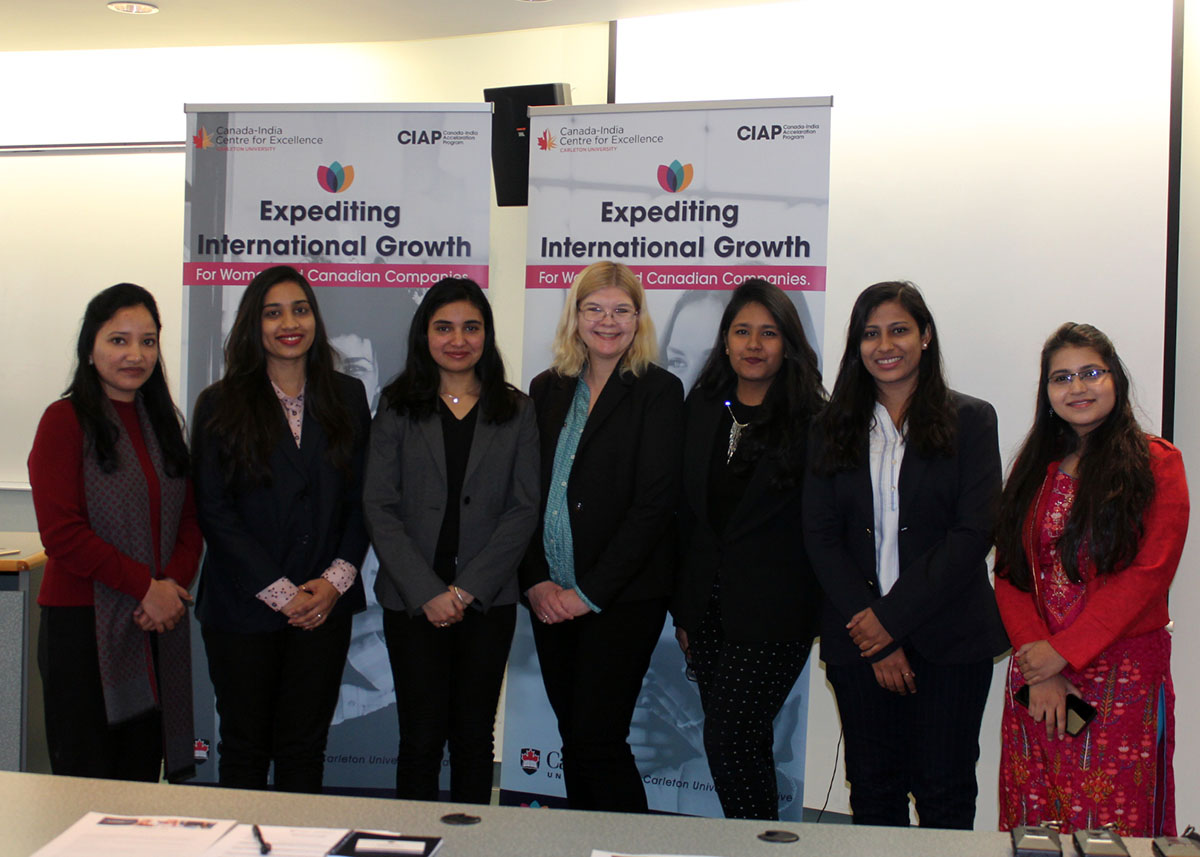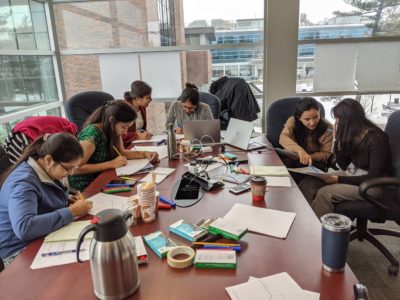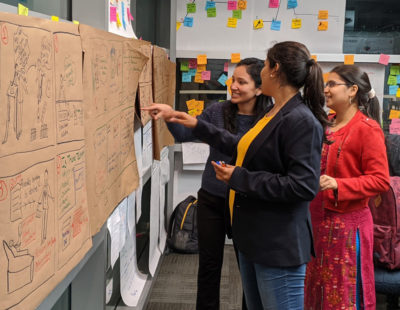Breaking barriers, building bridges: Sprott School of Business makes strides in internationalization, entrepreneurship and women’s empowerment

The Sprott School of Business and the Canada-India Acceleration Program (CIAP) are supporting women entrepreneurs – across both nations – in taking their businesses and initiatives to new heights.
Earlier this year, from Jan. 20-31, Sprott and CIAP hosted CIAP India – an initiative which saw five women entrepreneurs, who have innovative projects in the R&D stage, fly-in from India for a two-week boot camp at Carleton University.
Launched in 2018, CIAP is an accelerator created by Carleton’s Canada-India Centre for Excellence – and supported by the federal government, along with some external supporters. This accelerator, which is focused on women-led tech enterprises in both countries, aims to help them grow while finding a foothold in the other country’s market.
Across the world, be it within Canada or out, the percentage of female leaders is rather low. Within the tech sector it is lower still, Michael Weatherhead, CIAP’s program manager explained. “Easily 75% of all startups and most businesses are led by men.”
“This is a strategic initiative to say how we can help females take the risk but not feel like there’s a lot to lose by taking that jump into entrepreneurship,” Michael added. “The program really is geared around female empowerment and entrepreneurship.”

Once at Carleton, the entrepreneurs were taught the ins and outs of what they need to do to take their business from ideation to execution by experts from Sprott. Ranging from refining their ideas to planning their business model to pitching, they were shown it all. They were simultaneously introduced to the various opportunities available for them should they desire to bring their businesses to Canada.
They also had the opportunity to be informally mentored by Dean Dana Brown and Sprott professor Diane Isabelle, who both spent time interacting with and guiding the women outside the workshops.
“The learning was transformational for them,” said Rick Colbourne, an Assistant Professor at Sprott and an instructor for the boot camp.
While for Michael, what he saw in the classroom was “phenomenal”. “You could really see the wheels turning, you could see the light bulbs coming on, and you could see these techies really start to understand ‘oh here’s how you connect business to a technical idea to actually make it work’.”
They left at the end of the day ready to take their brilliant innovations to the next stage. Innovations which “have the potential to be life changing,” according to Michael.
The women’s inventions ranged from a herbal topical formulation to stop external bleeding to developing bioplastics from potential agro-waste. They also included a motion sensing glove which measures any irregularity in the movement of finger joints, a syringe which turns blue when used to distinguish the used from the unused, and a blood group detection kit which can identify blood groups without the need of processing the blood sample.
Now, back in India, the entrepreneurs have the tools and skills they need to turn these ideas into national/international ventures.

These entrepreneurs came into the 10 days “with a very technical approach, and came away with incredible minds for business,” Brettany Shannon-Fenn, head of marketing and communications for the initiative, said. “The women learned many valuable skills, strategies, and toolkits to apply directly to their ventures — we are very excited to see the amazing things they will do.”
“When we bring cohorts together, groups of women who have never met, and watch them become a community, resource, and sounding board for each other, it is a powerful thing to be a part of.”
And, the work is just getting started. Karen Schwartz, Associate Vice-President for Research and International at Carleton University is hoping to increase the numbers and also see Sprott and CIAP partner with different countries to launch similar programs.
“There are a lot of women that want to do business and have challenges gaining access to the information and the opportunities that men get access too. As long as some of those barriers exist then we can help women overcome them.”
Furthermore, through this initiative not only is Sprott playing a leading role in women’s empowerment but is also stepping up to help grow ties between nations and contributing to other nations in an increasingly globalizing world.
“The opportunity here is that we were able to make a stronger contribution through this exchange in supporting emerging entrepreneurs, emerging scientists, who need those extra skills and capabilities to push those innovations not only in their countries but globally,” Rick said. “So, we’re able to contribute to the success of not only individuals but we can contribute to the success of countries and their markets as well.”
“It’s a very important role.”
Karen added that this program is forming people to people connections, and “that’s the strongest way to start a relationship.”
“Because there’s trust, there’s understanding, and then you’re more willing to engage in research together as well as encouraging entrepreneurship as well as encouraging learning.”